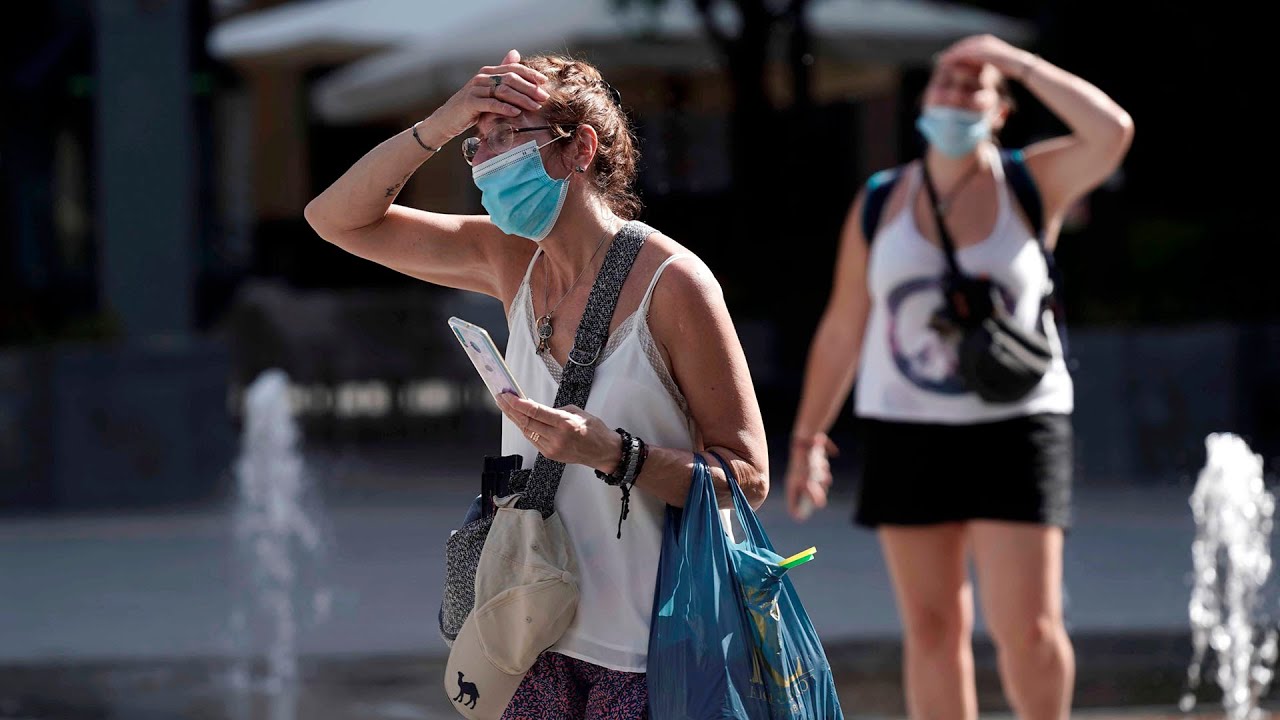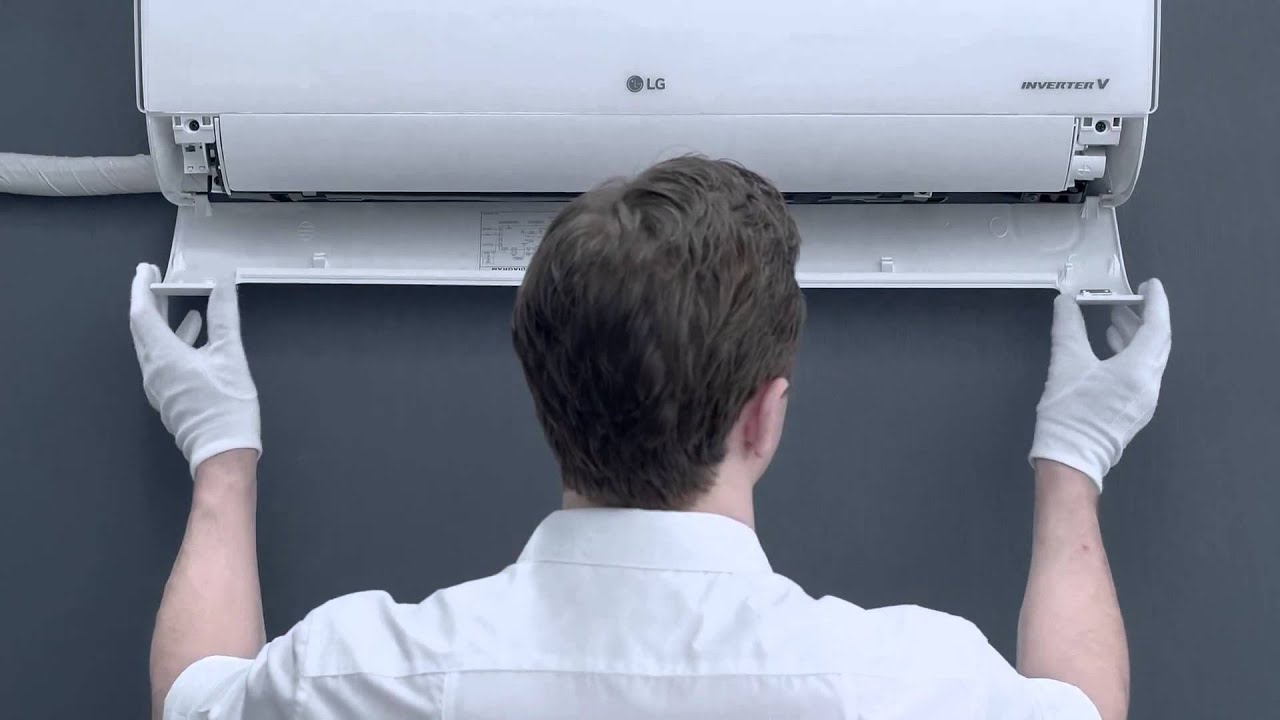Sudden changes in temperature can be associated with various factors. We know that they are influenced by the change of seasons and climate change that alter natural cycles. The truth is that going from cold to hot or from hot to cold can alter and affect our health.
The body has a natural system that regulates temperature and depends on the balance between heat production and loss.. Three mechanisms are involved in this process:
- Thermoreceptors that are located in the skin and the preoptic nucleus of the hypothalamus.
- Sweating and peripheral vasodilation.
- The area of control area in the brain.
There are many circumstances that can cause disturbances of thermoregulation. For example, exposure to low ambient temperatures can cause accidental hypothermia if there is a drop of more than 35 ° C in the body.
Sudden changes in temperature: how does sudden heat affect?
When the outside temperature rises, the human body reacts and activates its thermoregulation mechanism to cool itself. However, sometimes the sweating produced for this purpose is not enough to cool the body, which can lead to a dangerously high body temperature. For example, heat stroke is one of the disorders that you can suffer from. It is considered one of the most serious heat injuries and occurs more frequently during the summer months, when it reaches more than 40 ° C. Hyperthermia is a vital emergency.
Heatstroke symptoms include fever, agitation, dry skin, excessive sweating, nausea, and vomiting. Red skin, fast pulse, severe headache, and fainting may also occur. Among its causes we find exposure to hot environments during an exercise routine or even at rest, what is known as effortless sunstroke. However, Taking some medicines can also decrease the amount of blood that your heart pumps. limiting the flow of it to the skin. This condition can be fatal when there is a sudden increase in heat.

How does the sudden cold affect?
On the other hand, we found that cold weather contributes to the development of respiratory and cardiovascular pathologies. Low temperatures can cause blood vessels to narrow or constrict.
This condition affects blood pressure and heart rate. Furthermore, in patients with cardiovascular risk, it increases the chances of myocardial infarction and thrombus formation.
When this vasoconstriction occurs in the nasal area, the mucus becomes thicker and the chances of eliminating microorganisms are reduced. On the other hand, cold temperatures affect the ability of the immune system. This may be related to vasoconstriction, but also with the difficulty to synthesize vitamin D.
Viruses and bacteria like cold air
When the temperature drops, there is a reduction of humidity in the environment, which favors the proliferation of viruses and bacteria. It is not the cold itself that causes flu or allergies. In reality, this is a climate that promotes the colonization of microorganisms.
In fact, one study showed that cold temperatures and dry air increase your risk of infection by rhinovirus, one of the main causes of colds.
Now, it is not that there are no viruses during the summer. What happens is that hot climates and higher humidity slow down their access to the respiratory system. Thus, the chances of their spread are minimized.
It may interest you: How to avoid colds and flu with changes in the weather
Health Effects of Air Conditioning and Heating
It is normal for air conditioning to be overused in homes, offices, restaurants, and other enclosed spaces in summer. For many it generates well-being, being in a cool place outside is burning. Something similar happens in winter, when the heating is turned on.
However, these sudden changes in temperature affect health, cause seasonal colds and allergies. The Spanish Society of Otorhinolaryngology and Head and Neck Surgery (SEORL-CCC), for example, warns that the use of air conditioning is one of the main triggers for throat problems during the summer.
This institution specifies that the sudden change that occurs in the environment contributes to the appearance of diseases, such as pharyngitis and laryngitis. These being the most frequent causes of medical consultation and consumption of antibiotics.
However, heating also has its problems, because it can dry out the environment too much. This causes itchy throat and coughing as the airways become irritated.. The lack of humidity and a dry nose are the ideal environment for the proliferation of bacteria and viruses. Children are the most affected, according to one study.

How to take care of sudden changes in temperature?
To avoid the effects of sudden changes in temperature, some precautions can be taken, especially when they occur due to heating or air conditioning. The main thing, in fact, is not to abuse these appliances.
You can also take the following measures:
- Do not cover yourself much in places where there is heating to facilitate the transit to the cold environment.
- Regulates the temperature from 21 to 23 degrees at home and in the office.
- Take a coat with you in case the ambient temperature drops suddenly.
- Use sunscreen, hat or parasol in the summer.
- Avoid going directly into air-conditioned places; Wait to acclimatize a bit before doing it.
- Hydrate during the day, especially if you go out to play sports.
We cannot control sudden changes in temperature
The only sudden changes in temperature that can be expected are those related to air conditioning and heating.. Otherwise, it is impossible to do when it comes to the weather. Even so, to avoid affecting health we can take precautions such as those we already mentioned.
Climate change: how does it affect the immune system?
Sudden changes in temperature can cause various types of illnesses. A well-functioning immune system is the best ally in preventing them.
The immune system is responsible for defending the body against infections, such as bacteria and viruses. Through an organized reaction, the body attacks and destroys the infectious organisms that invade it.
When the immune system is less active than normal, the patient is said to have lowered defenses, which makes him or her more susceptible to repeated bacterial or viral infections or more severe illnesses.
The weather and sudden changes in temperature have an influence on the organism, as both temperature and humidity can cause respiratory diseases. Keeping the immune system strengthened and stimulated will help prevent a large number of pathologies.
Some tips to keep our defense system at its best
- Eat a balanced diet:
- Consume 2 liters of water per day and eat a diet with a high consumption of fruits and vegetables.
- Consume: Vitamin C (citrus fruits, melon, kiwi, bell pepper and tomato), Vitamin A (liver, eggs and dairy products) Vitamin E (wheat germ oil, soybean oil, cereals, rice, olive oil, green leafy vegetables and nuts). Iron (liver, meat, fish and eggs), Zinc and selenium.
- Avoid stressful situations: The current pace of life and situations of anger or nervousness generate severe alterations of the defenses. It is essential to be in a good mood, cheerful and smile several times a day. Some recommendations to improve the quality of life are: outdoor activities, or activities related to recreation and art.
- Good rest: Sleep should be restorative, should be done continuously and should consist of 7 to 8 hours.
- Physical activity: Exercise is one of the keys to a healthy immune system: it strengthens the cardiovascular system, improves mood, helps control weight, promotes good rest and increases defenses.
- Avoid: chemicals, preservatives, dyes, artificial sweeteners, tobacco, alcohol, canned and pre-prepared foods.
- Clothing: With weather changes, it is advisable to dress “in layers” to be able to adapt to different temperatures.
During sudden changes in temperature, the body becomes vulnerable because it must adapt to this change. This adaptation also includes the immune system, so it is important to be attentive and stay healthy.